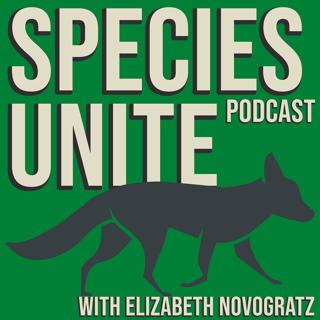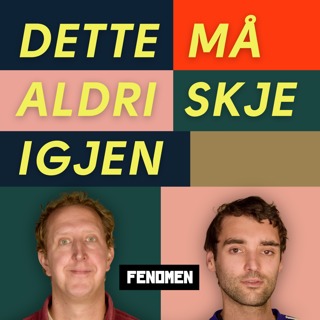
Karen Davis: This Conversation Will Change How You See Chickens
"Chickens have full color spectrum vision. That means they see the entire spectrum of colors from the infrared to the ultraviolet. The reason that roosters crow when for humans it is still dark outside is because they see the sunrise before we do, because they see infrared light. So, they're up and about in what for them is daylight, when for us it is dark out." – Karen Davis Karen Davis is the president and founder of United Poultry Concerns. They're an organization that promotes the compassionate and respectful treatment of domesticated birds. They also have a sanctuary for chickens in Virginia. Karen and I did this interview as a live episode in June. I wanted to talk to Karen about chickens for a couple of reasons, one because they're the most abused land animal on the planet; but also because I wanted to know more about them. Before this conversation I knew very little about chickens. And Karen knows everything there is to know them. She has been advocating for them, studying them, saving them, and writing about them for decades. Her most recent book is called For the Birds: From Exploitation to Liberation. Every year, a staggering 70 billion chickens are raised and slaughtered for meat, and around 300 million more are kept for egg production. And every single one of them is an intelligent, sentient individual.
9 Aug 202337min

Vicki von Holzhausen: Liquidplant
"Somebody told me, when I was a young designer at Mercedes, they said, 'well, it takes like... 20 cows to upholster this sedan.' …Clearly people believe that cows, that the leather, is a byproduct of the food industry, but that's not necessarily true. When you part out the cow, the leather is actually the most valuable component of the cow. - Vicki von Holzhausen Vicki von Holzhausen is a former car designer who decided to make a vegan leather that could rival animal leather. After much research and many experiments, she and her team developed a sustainable leather alternative. They tested it out as a handbag which then became a luxurious line of vegan handbags and accessories, called von Holzhausen. But that wasn't enough, because Vicki's bigger mission was and is to remove animal leather from the materials system. So, they headed back into the lab and continued to create more and better leather alternatives. While they were there, von Holzhausen's mission grew even bigger. Yes, they'd continue to develop beautiful and sustainable materials to replace animal leather, but why not replace plastic too? Earlier this year, the von Holzhausen team announced the introduction of the Liquidplant, the world's first 100% plant-based, high-performance topcoat, making plastic-free materials a reality. Liquidplant can replace plastic topcoats in all kinds of materials, including synthetic leather paper, wood, plastic and fabric, meaning it can and will change the world. "… when you think about deforestation, the microplastic pollution, if we can start to chip away at eliminating whole areas where leather and plastic polyurethane are being used, then we will make a dramatic impact." - Vicki von Holzhausen
2 Aug 202327min

Catalina Lopez: Octopus Factory Farming is Set to Begin
Catalina Lopez is the director of the Aquatic Animal Alliance at the Aquatic Life Institute. They're a nonprofit focused on improving the lives of aquatic animals, specifically in the food system. I wanted to talk to Catalina about octopuses. This year, we're set to see the world's first octopus factory farm open in the Canary Islands. Just when it seemed humans could not get worse, we decide to farm octopuses? This is a terrible idea for so many reasons, from animal welfare to environmental concerns. It's cruel and it's unethical and it's an enormous step in the wrong direction. We should be shutting down factory farms, not looking for new sentient and intelligent species to torture inside of them. https://ali.fish/
26 Jul 202334min

Marielle Williamson is Suing Her School District and The US Department of Agriculture
"Despite all the information that we see promoting dairy [in school], you cannot promote plant-based milk unless you also promote dairy even more. It just goes to show that there's something more to it." – Marielle Williamson Mariel Williamson recently graduated from high in Los Angeles. This past spring, while still a student, she was told by her school that she couldn't share information about plant-based milk or be critical of the dairy industry unless she provided pro dairy content as well. So, Marielle is suing - both the Los Angeles Unified School District and the Unites States Department of Agriculture, for violating her First Amendment right.
19 Jul 202318min

Rose Patterson: Animal Rising
Rose Patterson is part of Animal Rising, the animal activist movement that's disrupting animal exploitation all over the UK. Animal Rising used to be called Animal Rebellion, that is until April. And since April, which is only a few months ago, they've exploded - they are everywhere. They have disrupted horse races and greyhound races, they've broken into labs, they've stolen beagles, they've stolen King Charles's lambs. And they've received a huge amount of press because of their actions. Much of that press has been TV time, which means that conversations about how we treat animals, not just in the ways mentioned above but in our food system, are taking place all over the media in the UK. Animal Rising is changing the game for what activism looks like. Rose and I met a couple of weeks ago in London, where she lives. She and another Animal Rising activist had just tried and failed to go on a trip to the US.
12 Jul 202330min

Kartick Satyanarayan: The Bear Man of India
"Right from the beginning I think I was infected with this disease. It's a very, very contagious disease of not knowing how to say no to an animal in distress. So, alongside of the bears, we were rescuing everything else: crocodiles, snakes, birds, deer, foxes, jackals, you know, I mean, you name it." - Kartick Satyanarayan Kartik Satyanarayan is the co-founder and CEO of Wildlife SOS, an organization that was founded in 1995 with the mission to make lasting changes to protect and conserve India's natural heritage, forests and biodiversity. Kartick and Wildlife SOS work towards protecting wildlife, conserving habitat, studying biodiversity, conducting research, and creating alternative and sustainable livelihoods for erstwhile communities that depend on wildlife for sustenance. They run several projects to support bear conservation in India, including the largest rehabilitation center in the world for sloth bears. Kartik is often referred to as the 'Bear Man of India' because of his efforts to put an end to the illegal practice of dancing bears. But in reality, he and Wildlife SOS work to protect all of India's wildlife, including the elephants. They rescue, treat and care for elephants that are exploited in the abusive tourism and "begging elephant" industries and work to end the plight of injured and sick elephants that are forced to work in unnatural conditions. Kartick's stories are extraordinary and his love for India's wildlife is indeed contagious. wildlifesos.org
21 Jun 202359min

Elizabeth Baker: Organs on a Chip, Reconstructed Human Epidermis, Human Simulators and other Highly Effective and Seriously Ethical Methods to Replace Animals in Research and Experimentation
"I think we are at the point where so many of these methods have shown in studies to be more predictive for humans that it really is an issue of human health. We need to do better for patients. We know we can and that these methods exist, so we need to use them." -Elizabeth Baker This past season, we've focused quite a bit on animal research and experimentation, and a lot of our focus has been really on just how bad it is, how bad it is for the animals, how bad it is for science, and how bad it is for taxpayers who are spending so much money on this stuff. What we haven't focused enough on are solutions. And there are solutions. There are many many human relevant methods that are here to replace animal testing and there are many more on the way. Elizabeth is the director of research policy for the Physicians Committee for Responsible Medicine. They're a nationwide organization of physicians and laypersons that promote preventative medicine. They conduct clinical research, and they advocate for more effective, efficient and ethical medical research, product testing and training. pcrm.org
14 Jun 202327min

Daniel Kaul: The Brutal Life Cycle of Captive Lions
"We don't know one case where a lion which was hand fed or bottle fed was released successfully in the wild. Of course, if they see humans and they understand that humans is the connection to food, it will be always a danger to put those lions back in the wild. And many of those companies use that as an excuse why this conservation project is important, but we don't think so and we don't believe that of course. It's in my opinion, nonsense." – Daniel Kaul Daniel Kaul is the founder of Natucate, an environmental travel company that works to build a safer, more sustainable eco-tourism industry. Unfortunately, the eco-tourism industry has been hijacked by a lot of bad players who are taking advantage of animal lovers. And, some of the animals that are suffering the most because of these bad players, are lions. Please listen, share and don't participate in tourism that involves interacting with wild animals. Natucate: https://www.natucate.com/en
7 Jun 202329min





















